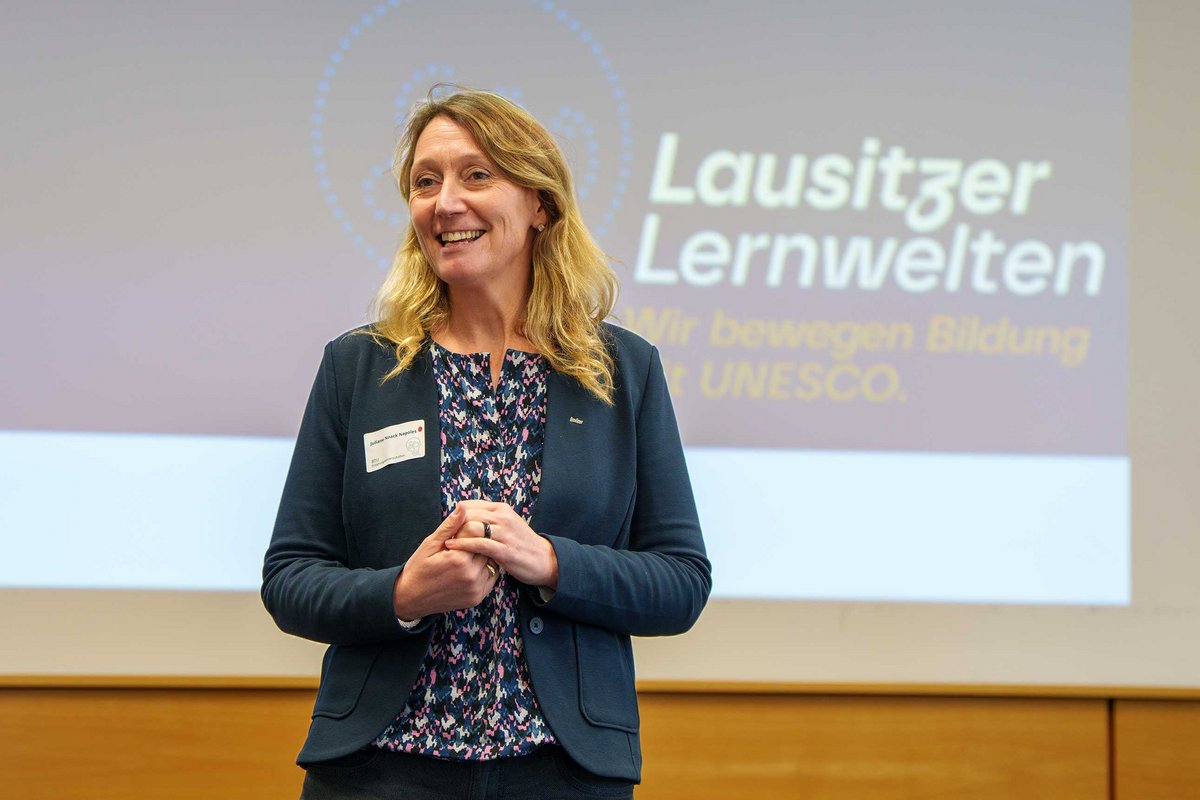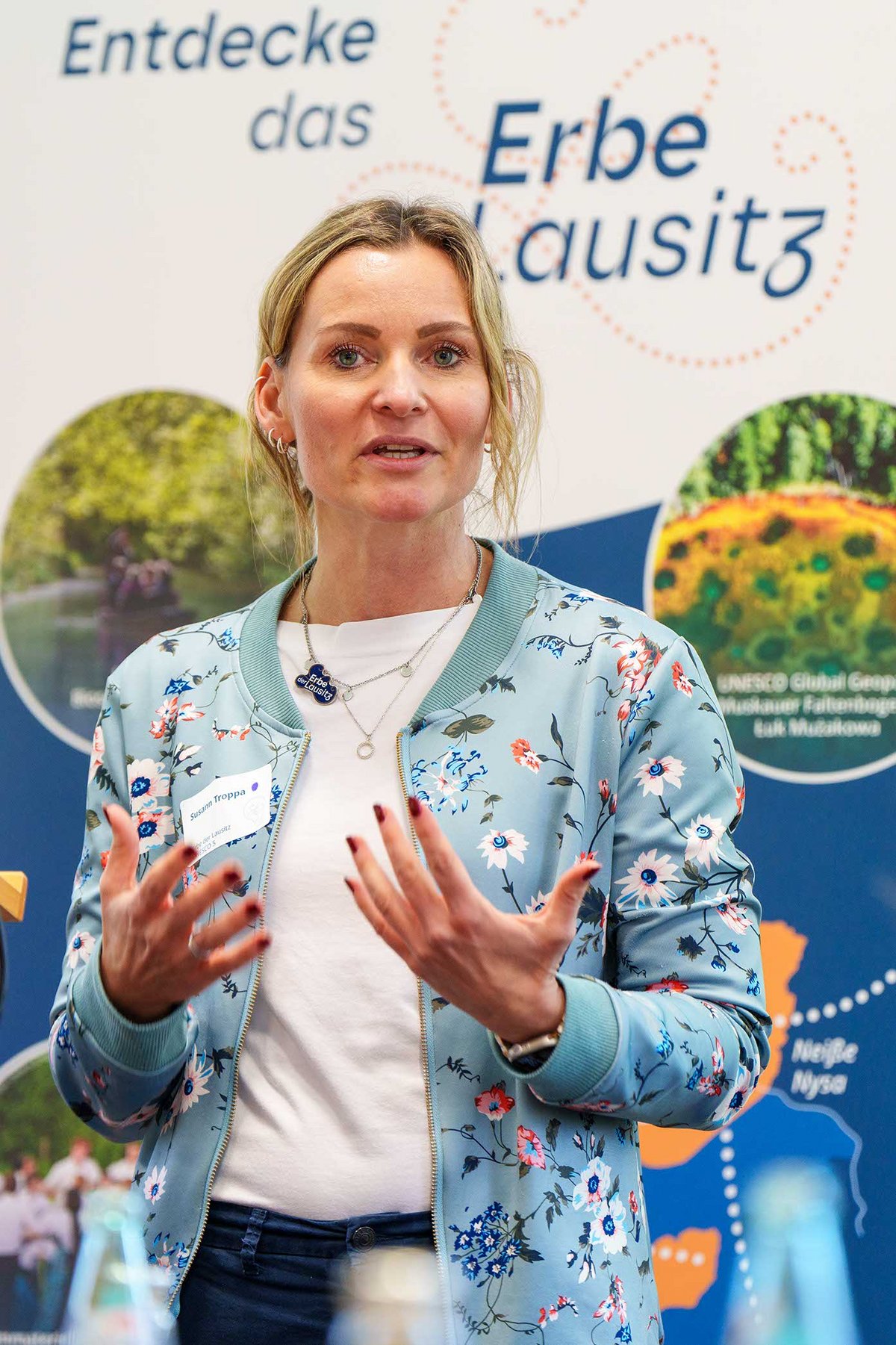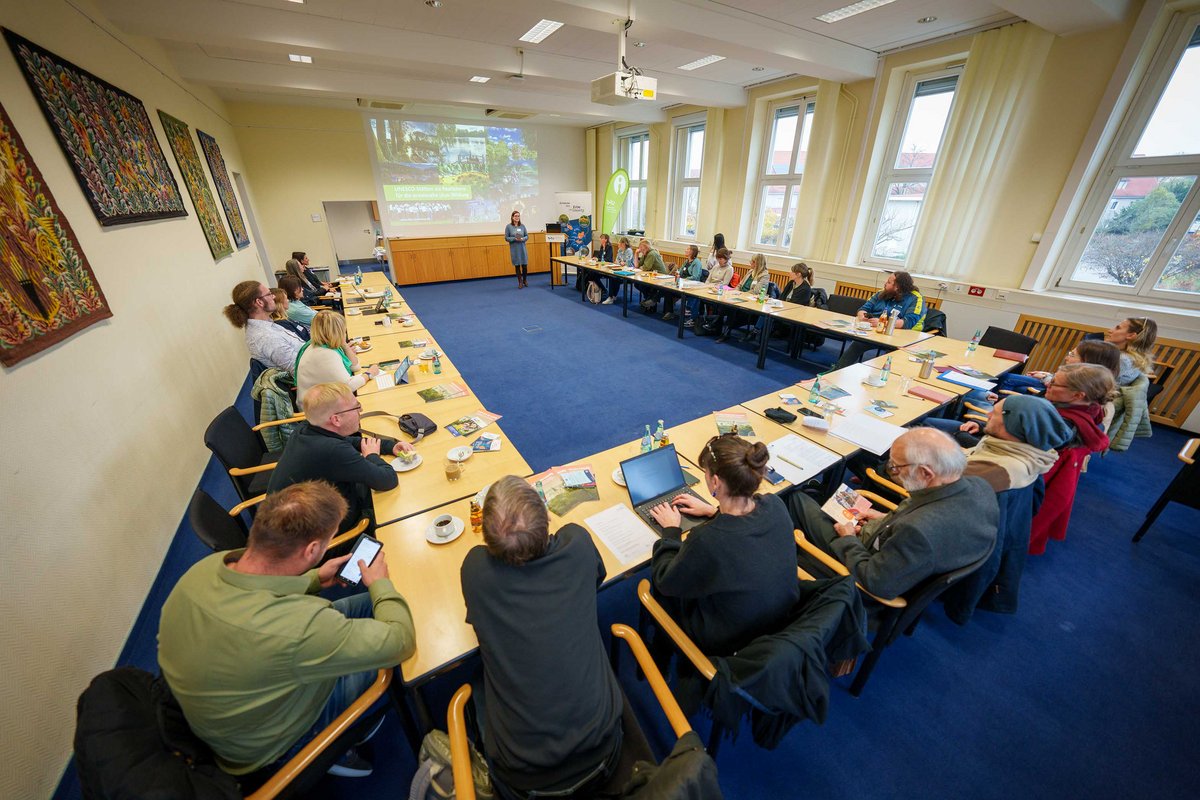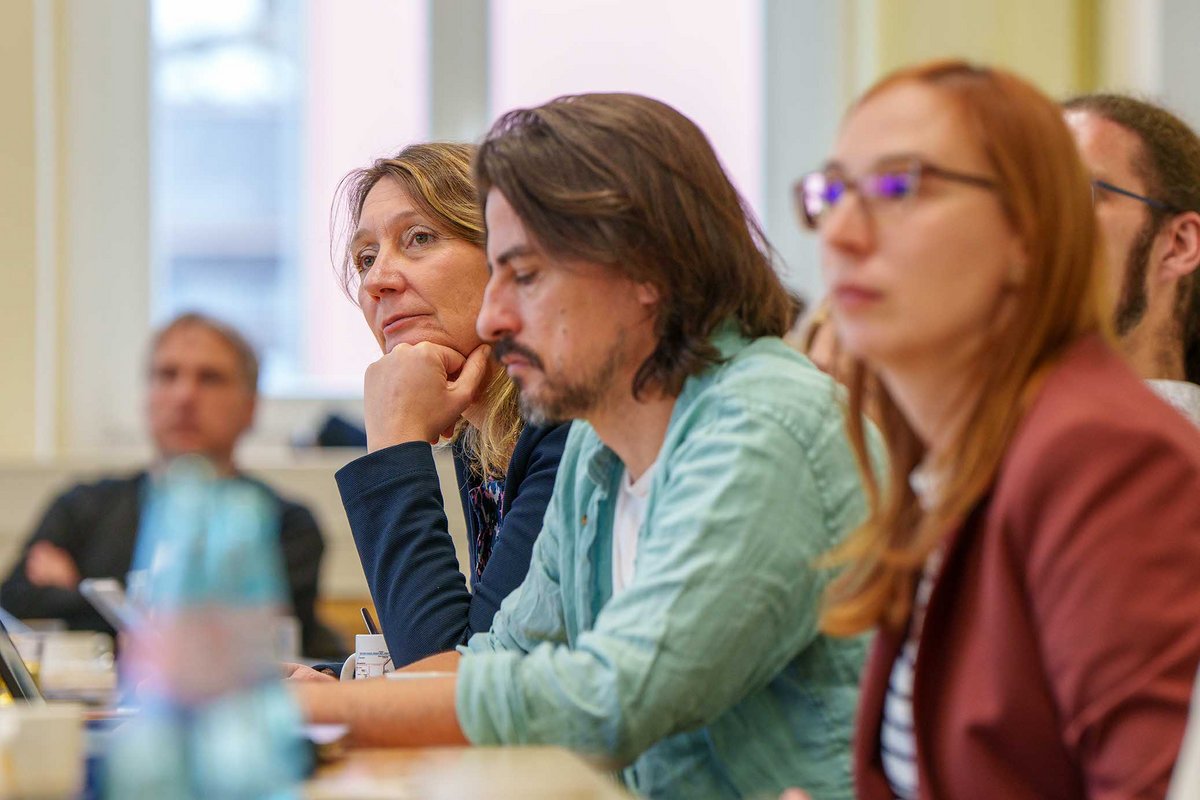First Learning Worlds Lab in Lusatia
At the invitation of the Heritage of Lusatia project (UNESCO 5), which operates from the UNESCO Spreewald Biosphere Reserve, and the Chair of Education Sciences at the Brandenburg University of Technology Cottbus-Senftenberg, innovative ideas for educational projects in Lusatia were developed at the first Learning Worlds Lab under the motto "Lusatian Learning Worlds - We move education with UNESCO". In various workshops, the participants discussed the potential of the Lusatian UNESCO sites as extracurricular learning centres and real-world laboratories for teaching. In particular, the focus was on linking university teaching more closely with the cultural and natural resources of the region, including the Sorbs. In this way, young people are to be more closely involved in the regional heritage.
Extracurricular learning centres as real-life laboratories for teaching
Coordinated by the Heritage of Lusatia, the Learning Worlds Lab brought together chairs of Education Sciences, Teaching, Social Work and Object Research at BTU Cottbus-Senftenberg with important regional institutions such as the Sorbian Institute and the Federal Institute for Spatial Research. In a creative exchange, inspiring project ideas were developed that turn UNESCO sites and intangible cultural heritage into living real-world laboratories for teaching.
The focus was on interdisciplinary dialogue in order to examine the project ideas directly from the perspective of the various experts in terms of their feasibility, needs-based, profitable and target-oriented nature. The aim is to integrate the Lusatian UNESCO sites and the intangible cultural heritage as living places of learning into training and teaching at the university.
"Our Lusatian UNESCO sites and intangible cultural heritage are lively extracurricular places of learning. They open windows into the past and show us ways into the future. There is huge potential here that we can exploit together," emphasises Susann Troppa, project manager of the Heritage of Lusatia (UNESCO 5 project).
Prof. Juliane Noack Napoles, Head of the Chair of Education Sciences and Primary School Teacher Training Study Programme at BTU, emphasises: "At a time when the importance of education for sustainable development and an increasing awareness of cultural heritage are coming into focus, cooperation between UNESCO and universities in Lusatia is of central importance. It not only contributes to the preservation of the region's unique heritage, but also to the education of a generation of responsible citizens who are able to meet the challenges of the future.
Realising untapped potential in the education sector
In the run-up to the event, over 130 student teachers had already contributed their ideas on the Lusatian UNESCO sites and the role of intangible cultural heritage in the morning. A survey showed that although most of the students come from Lusatia, they had not visited any of the region's UNESCO sites during their school careers.
The interactive lecture therefore not only highlighted the potential of Lusatia's heritage as extracurricular learning sites and real-world laboratories, the students also developed initial project ideas on how Lusatia's cultural heritage could play a greater role in the classroom.
Creating new awareness and perspectives for Lusatia
The event also emphasised the potential that the various faculties at BTU Cottbus-Senftenberg can tap into together with the UNESCO sites and intangible cultural heritage. Prof. Dr Juliane Noack Napoles said: "These sites offer us a stage to impart and network knowledge in a practical way. The special thing about these places of learning goes even further: they are real laboratories! Here we can integrate Lusatia into teaching in a lively way and create a new perspective for the region."
Next steps and funding for innovative ideas
In preliminary surveys and in the expert dialogue as part of the Learning Worlds Lab, it became clear that networking and interlinking with one another must be strengthened in particular. Under the umbrella brand "Lusatian Learning Worlds - We move education with UNESCO", the project managers from Heritage of Lusatia will therefore be focussing on bundling existing offers and making them more visible in the coming months. There are also plans to use AI support to make the first teaching materials on Lusatia's heritage available for download.
In close consultation with those responsible for teaching at BTU Cottbus-Senftenberg, the best ideas from the Learning Worlds Lab and other innovative educational formats will also be further developed over the next few months to make them eligible for funding. In addition to transnational excursions and an excursion pass, the project ideas developed in the Learning Worlds Lab also include scholarship programmes, a Master's degree course and the use of other AI-supported teaching materials and VR formats.
The long-term goal of these and other measures is to strengthen the interlinking and communication of the educational programmes offered by the Lusatian UNESCO sites and intangible cultural heritage and to anchor the use of the sites in vocational training. In this way, the Lusatian UNESCO sites and intangible cultural heritage can make a significant contribution to regional identity and education in Lusatia.
Background
The project "Lusatian UNESCO sites support a sustainable transformation of Lusatia" (UNESCO 5) links the Lusatian UNESCO sites and the region's intangible cultural heritage across borders. Under the sponsorship of the state of Brandenburg, it is funded by the Federal Office for Economic Affairs and Climate Protection as part of the programme "Strengthening the transformation dynamics and new beginnings in the coal mining areas and at coal-fired power plant sites (STARK)".
The Learning Worlds Lab event was made possible by the Heritage of Lusatia (UNESCO 5 project) in summer 2024, which the German UNESCO Commission, Henkel AG & Co. KGaA and the Fritz Henkel Foundation awarded for the development of innovative educational programmes.
Contact project manager
Susann Troppa
"Heritage of Lusatia" project manager
UNESCO Spreewald Biosphere Reserve
Tel: +49(0)3542/8921-15 or -18
E-mail: unesco5(at)lfu.brandenburg.de
Contact us
Erziehungswissenschaften für die Soziale Arbeit
T +49 (0) 355 5818-414
noacknap(at)b-tu.de
Kommunikation und Marketing
T +49 (0) 3573 85-283
ralf-peter.witzmann(at)b-tu.de




